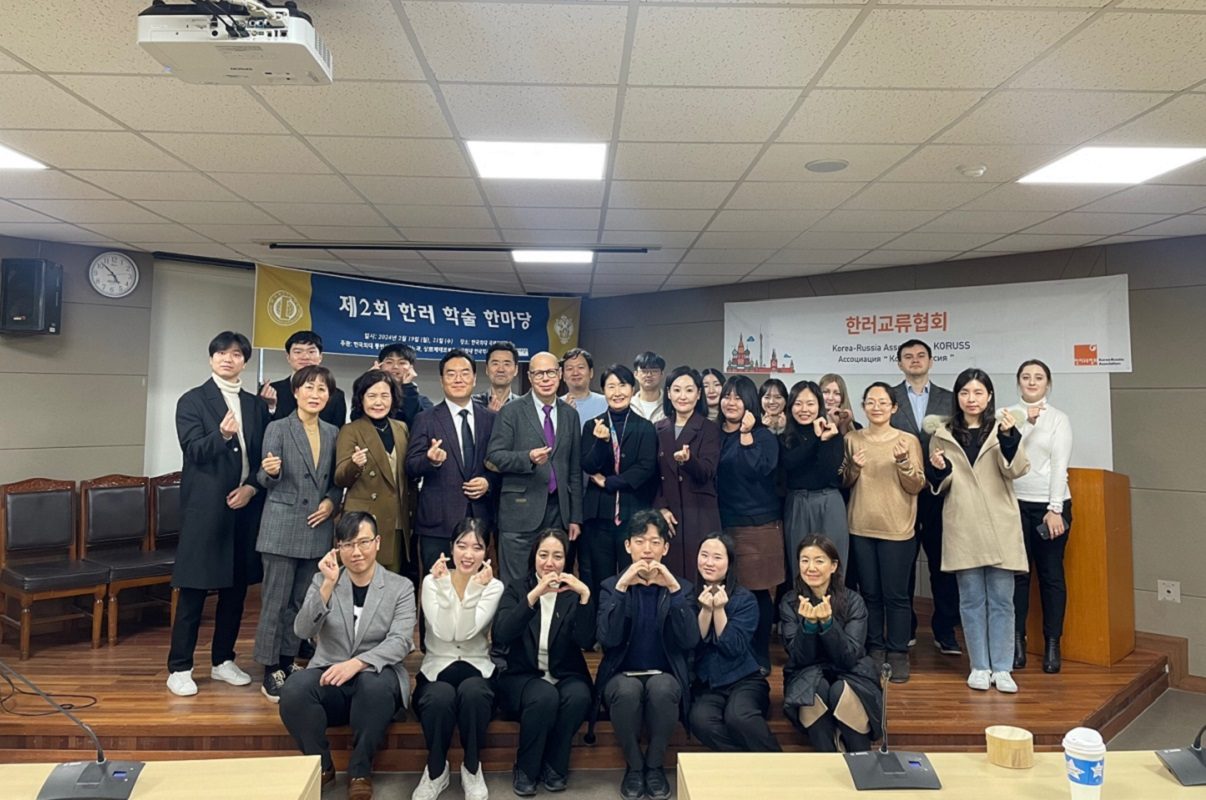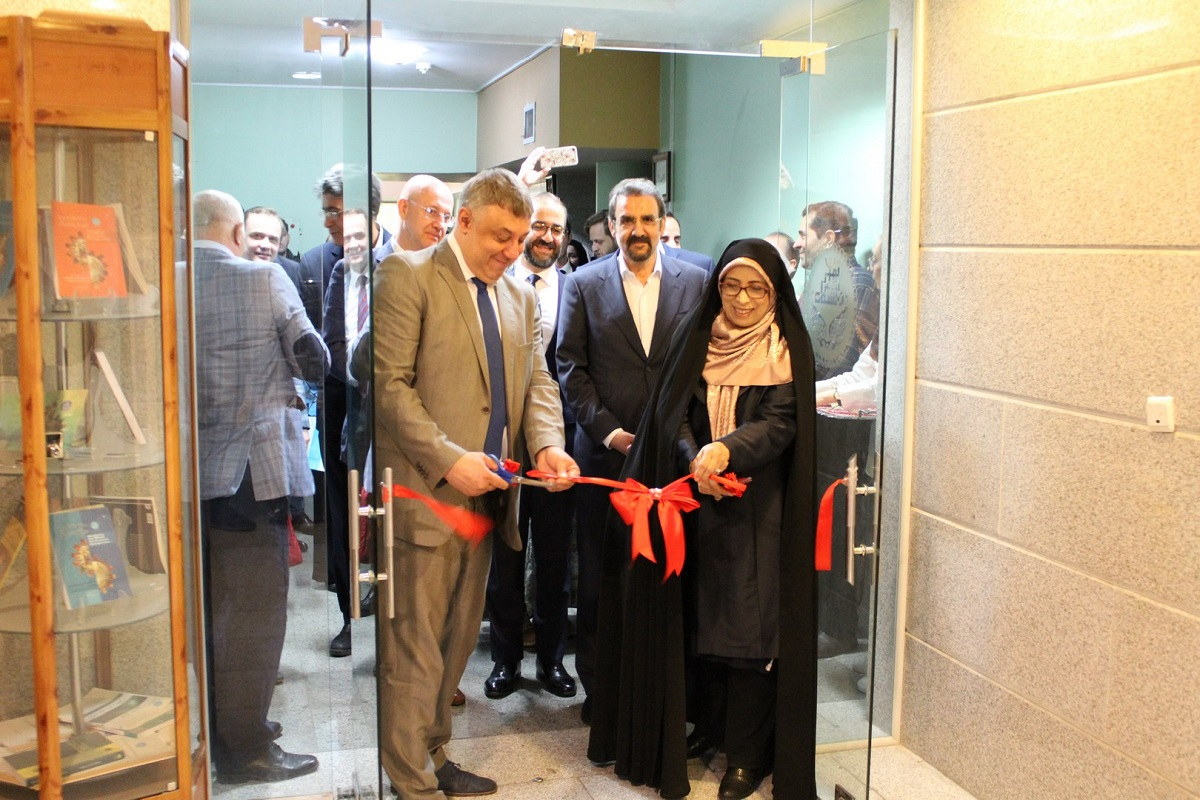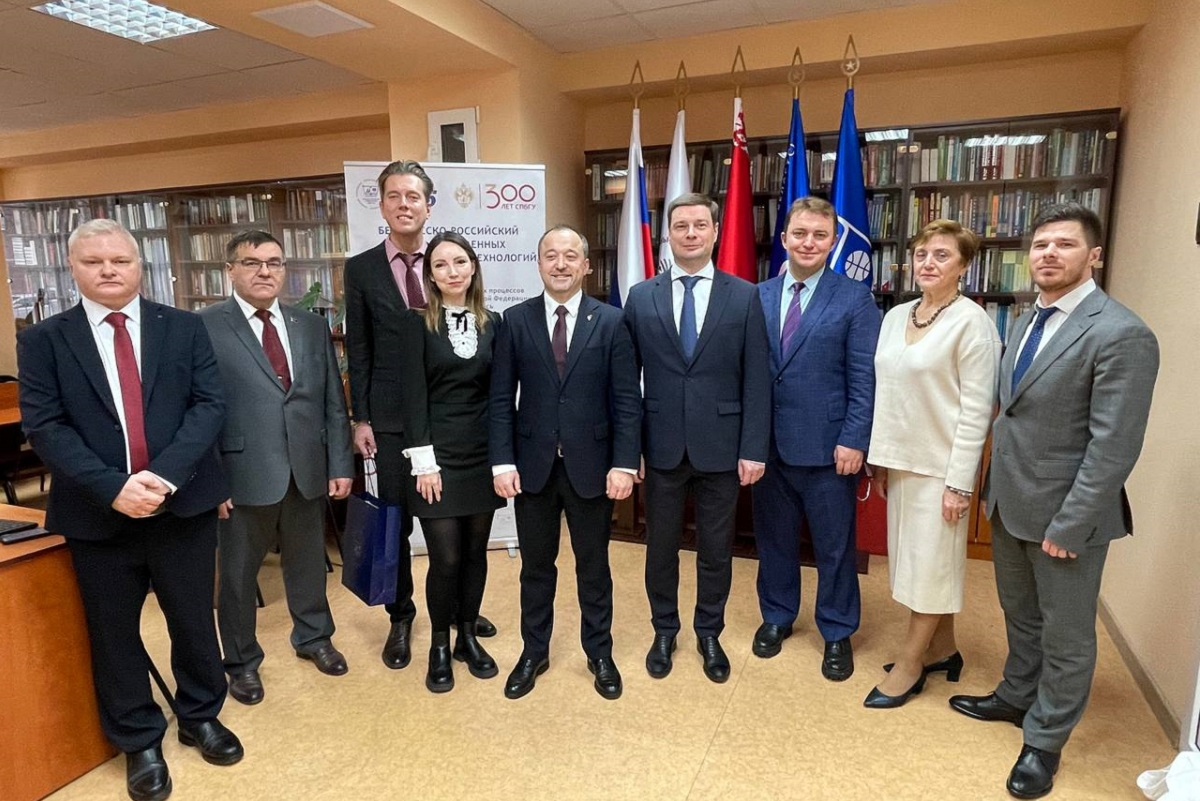TORFL, open lectures, and student networking: a year in review at SPbU Representative Offices
St Petersburg University’s representative offices have become hubs for people from all over the world who wish to learn more about Russian history, language and culture. In 2024, these offices hosted nearly 100 educational lectures by SPbU faculty, as well as Test of Russian as a Foreign Language (TORFL) sessions, international scientific conferences, seminars and student teleconferences.
The SPbU Representative Offices project promotes Russian language, history and culture, as well as academic exchanges and joint scientific and educational initiatives abroad. Today, the University has centres in Spain, Italy, Greece, China, South Korea, Moldova, Uzbekistan and Thailand. In the year of the 300th anniversary of St Petersburg University, two new representative offices were opened in the Islamic Republic of Iran and the Republic of Belarus.
Spain
Throughout the year, the Russian House in Barcelona hosted open online lectures in the arts, cognitive studies, linguistics, psychology and other fields. Guests enjoyed lectures by leading SPbU academics, including Nina Shcherbak, Associate Professor of English Philology and Linguoculturology, who spoke about the works of Russian and foreign writers, poets and filmmakers. Anton Sheikin, Associate Professor of High Energy and Elementary Particle Physics and winner of the 2021 Russian Society "Znanie" Award in the "Educator of the Year" category, introduced the audience to the fundamentals of quantum mechanics.
A total of 65 lectures were given by 26 SPbU faculty members at the Spanish representative office. Topics ranged from Soviet-era historicisms and computer technologies in linguistics to the architecture of St Petersburg, the audiences of modern digital media, and the nuances of learning Russian as a first or second language in childhood. Additionally, Senior Lecturer and member of the St Petersburg Union of Architects, Evgenia Petrashyen (Department of Design), led a virtual tour of the exhibition showcasing works from the third season of the "Benois Dacha" art residency. A lecture series titled "People of SPbU: Great Mentors, Great Students" also took place as part of the University’s 300th anniversary celebrations, with more events planned for the coming year.
Thailand
The SPbU representative office in Thailand kicked off 2024 with online lectures on variations of the English language for students of the School of Liberal Arts and consumer rights protection for students of Walailak University’s School of Law. These events laid the groundwork for further research and educational collaboration. SPbU co-organised research conferences at its partner university to mark its anniversary, with students and faculty presenting in the fields of medicine and nursing. For example, SPbU student Moisey Gichingiri (Nursing) presented on "Nursing Ethics: Caring for HIV Patients and Their Families," while Irina Vartanova, Associate Professor at SPbU’s Medical College, spoke about palliative care for patients with ascites. SPbU’s Medical Institute and the Pirogov Clinic of High Medical Technologies also participated remotely as reviewers and members of the committee for the best oral presentations at Walailak University.
In the summer, SPbU faculty delivered a series of open lectures on "Basics of Russian Language and Culture" as part of a Russian language course for foreigners. The interactive sessions covered essential language skills for tourism. The year ended with the joint international conference "Modern Aspects of Family Medicine."
South Korea
The SPbU representative office in South Korea hosted the second Korean-Russian student teleconference to promote dialogue between students. This year’s focus was on translation challenges faced by young professionals. Students presented papers on translating traditional poetic texts and Korean novel titles, adapting Korean neologisms and literary character names to Russian, and other related topics.

At Hankuk University of Foreign Studies, Park Jong-ho, Chairman of the Korea-Russia Business Council, spoke on "The Era of AI Technology Competition: Prospects and Challenges for Korean-Russian Cooperation in Innovative Technologies." Sergey Kurbanov, Head of the Korean Studies Department at SPbU, gave a special lecture in Korean on the nuances of interpreting during official negotiations.
Uzbekistan
At the SPbU office in Uzbekistan, located in the Navoi Free Economic Zone, SPbU faculty gave 12 lectures on oriental studies, law, economics and agriculture. Professor Tatiana Matveeva (Department of Genetics and Biotechnology) discussed natural and transgenic GMOs, while Professor Sofia Lesovaya (Department of Physical Geography and Landscape Planning) spoke about the mineral composition of Uzbek soils. Experts also highlighted cooperation with China, covering topics such as the history of Russian-Chinese relations, e-commerce in Russia and China, and the portrayal of China in contemporary Chinese literature.
China
At the Harbin Institute of Technology, where St Petersburg University’s office is located, a series of public lectures were held on topics such as natural GMOs, recent advances in quantum technologies and the development of materials based on functional polysiloxanes. In addition, a Russian-Chinese seminar entitled "Current Issues in Materials Science" was held. During SPbU Day, students had the opportunity to learn more about the history of Russia’s oldest university and its educational programmes.
Throughout the spring, summer and autumn 2024 semesters, SPbU faculty organised weekly mathematics seminars for Harbin Institute of Technology students every Friday. In October, the students were introduced to SPbU’s extracurricular activities and ongoing competitions, and were encouraged to participate. In addition, students from the joint campus of St. Petersburg University and Harbin Institute of Technology participated in a teleconference to mark the start of the academic year at the University’s student commencement ceremony.
Moldova
At the SPbU representative office based at the Slavic University in the Republic of Moldova, a teleconference was held on the challenges of youth education and future professions. Participants included members of the Student Scientific Society of St Petersburg University (Department of World Economy) and their Moldovan counterparts. Representing SPbU, Ekaterina Andrianova, Assistant Professor at the Department of World Economy, delivered a keynote speech titled "Employment Opportunities for SPbU Economics Students and Collaboration with Employers within the Framework of Educational Programmes." During the meeting, proposals were made to deepen cooperation between Russia and Moldova in socio-economic and cultural spheres, as well as to identify potential areas of collaboration.
Additionally, SPbU faculty delivered open lectures at the representative office. Sergey Ushchipovsky, Associate Professor at the Department of Journalism History, spoke about the historical aspects of Russian-Moldovan communicative ties. Vladimir Sherov-Ignatiev, Associate Professor at the Department of World Economy, discussed current trends in regional and bilateral trade agreements. Yana Testina, Head of the Department of Country Studies and International Tourism and Deputy Head of SPbU’s Tour Guide Clinic, presented on modern trends in the digitalisation of tourism.
Iran
In 2024, the official opening of St Petersburg University’s representative office took place at the University of Tehran in the Islamic Republic of Iran.
The ceremony was attended by distinguished guests, including Alexander Alimov, Director of the Department for Multilateral Humanitarian Cooperation and Cultural Relations at the Russian Ministry of Foreign Affairs; Mehdi Sanai, former Ambassador of the Islamic Republic of Iran; Vladimir Kochin, Executive Director of the "Russkiy Mir" Foundation; and Stanislav Golubev, General Director of Zlatoust Publishing House.

In November, the SPbU representative office hosted an open lecture titled "Issues in Interpreting and Applying International Treaties," delivered by Innokenty Karandashov, Acting Head of the Department of International Law at SPbU and Associate Professor.
Belarus
In the 2024/25 academic year, a competition was launched dedicated to the works of two outstanding literary figures: Alexander Tvardovsky and Arkady Kuleshov. The selection phase will run until 24 February.
In autumn 2024, the Belarusian-Russian Centre for Modern Educational Technologies opened at MITSO International University. Its goal is to develop joint educational and cultural projects to strengthen Russian-Belarusian ties and promote integration within the Union State. The centre’s inaugural event, "Networking for Students of Russia and Belarus," brought together students from both countries to foster collaboration and exchange ideas.

Students from St Petersburg University, led by Nikolay Parfenenko, Deputy Dean of the Faculty of International Relations, presented their student communities, scientific and social projects, and startups.
In December, the centre was visited by Alexander Babich, Acting First Vice-Rector for Youth Policy and Admissions at SPbU, who launched the fourth season of the international research competition "Literary Destinies of Belarus and Russia: From Dialogue to Understanding".
Greece
In February, the SPbU representative office, based at the Russian Word Centre for Russian Language and Culture in Thessaloniki, held its traditional winter session of state Test of Russian as a Foreign Language. More than 40 candidates participated remotely. In March, 80 students who successfully passed the 2023 TORFL, as well as 44 finalists of the SPbU’s Fourth International Online Olympiad in Russian as a Foreign Language, were honoured during the 18th Certificate Award Ceremony. The event was attended by representatives of the Russian Consulate General in Thessaloniki, the SPbU’s Language Testing Centre, and the management of the Russian Word Centre.
An online meeting was held for students on the Let’s Dive in Russian programme to discuss participation in the summer testing session. Over 70 Greek students with Russian language levels from A1 to B1 received detailed information about the exam procedure. The session covered important details about the exam format and the documents required for registration. It is worth noting that SPbU has been offering free online Russian language courses for students and staff of the University of Ioannina since 2020, with over 70 participants choosing the test as their final assessment in the last academic year.
A special webinar on the use of artificial intelligence was organised for students of the Russian Word Centre, focusing on the capabilities of Telegram and the Russian neural network GigaChat. The speaker was Valeria Stolyarova, Senior Lecturer at SPbU’s Department of Computer Science and Junior Researcher at the Laboratory of Applied Artificial Intelligence of the St Petersburg Federal Research Centre of the Russian Academy of Sciences. The webinar explored the functionalities of the Telegram bot "AI Assistant for Universities," which can perform various academic tasks, from essay writing to image creation.
In summer, over 150 candidates participated in an in-person TORFL examination at the SPbU representative office in Thessaloniki. Certificates were awarded to those who successfully passed the exam, as well as to participants of the AI webinar and the online project "Russia’s International Relations in the 20th Century" in October. During the event, SPbU staff presented the University’s educational activities in Greece to an audience of over 220 people.
In autumn 2024, the fourth cycle of free lectures on Russian history for Greek residents had started, with the focus on the USSR in the second half of the 20th century. Enrolment reached 130 participants, and the sessions will continue into 2025. Previous lecture topics included the formation of the ancient Russian state, the connection between Byzantium and Russia, the role of the Russian Empire in the emergence of modern Greece, and Russia’s international relations in the 20th century and the Soviet era.

